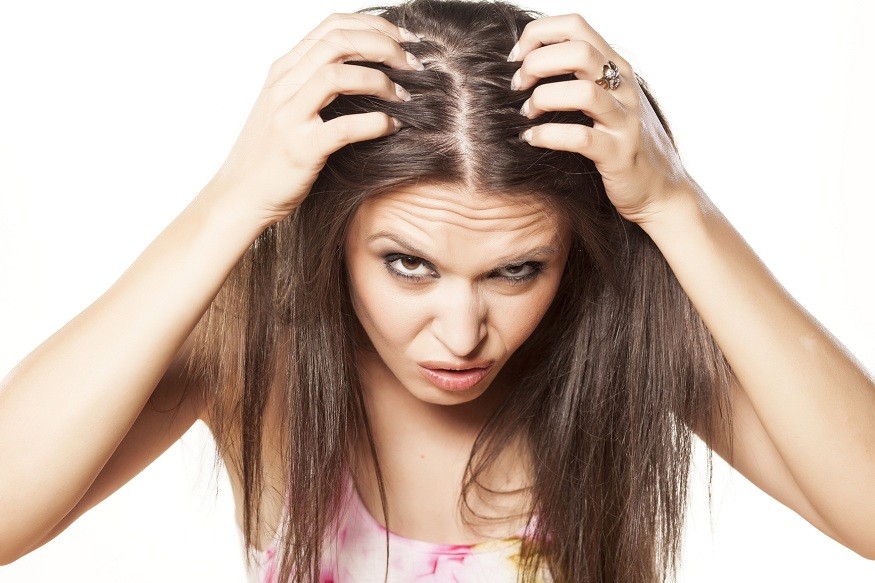Rose water has been part of beauty routines for centuries. Native to Iran, rosa damascena, or “twilight rose” as it is popularly known, has been cultivated for its essential oils since the 7th century AD Created by combining dusk rose essential oil with water, rose water is a solution that can be sprayed or poured. Due to its medicinal abilities and its importance in their religious beliefs, Iranians have a strong connection with this plant. These roses are symbols of love, purity, faith and beauty, which has led to their popularity around the world.
With its pleasant fragrance and antioxidant properties, rose water has recently gained popularity in skin care. Studies have shown that rose water extracts may have anti-inflammatory abilities and may help prevent aging. And while many scalp issues can be traced to irritation and inflammation, skincare enthusiasts have experimented with rosewater on their scalp and hair.
To find out if rose water is what’s missing from our diet, we turned to Bosley® Certified Trichologist Gretchen Friese and Board Certified Dermatologist Shari Sperling for their experience using rose water for skin health. hair and scalp.
Meet the expert
Shari Sperling, DO, is a board-certified dermatologist who specializes in medical, cosmetic, laser, and surgical dermatology.
Rose water
Those with curly or dry hair can benefit from its moisturizing properties. Rose water is not recommended for people allergic to roses or other flowers as it may cause irritation.
How often can you use it: Rose water can be applied to hair and scalp 2-3 times a week as a mist or rinse.
Works well with: Witch hazel can be used in combination with rose water to reduce scalp inflammation. Both should be used in moderation to avoid overuse and a physician should be consulted before commencing use.
Benefits of rose water for hair
Topical application of rose water can have many benefits for hair and scalp. A mild astringent, rose water can prevent excess sebum production on the scalp. Additionally, rose water contains vitamins A, B3, C, and E, and has been shown to prevent inflammation. Sperling notes that the anti-inflammatory properties of rosewater can even help with conditions like eczema and scalp psoriasis.
Mild Scalp Astringent: Rosewater acts as an astringent on the scalp, tightening the skin to prevent excessive oil production.
Dandruff Defense: By reducing oil production, rose water works to prevent dandruff from forming on the scalp. Sperling recommends targeting oiliness in the scalp to stop dandruff because it’s a byproduct of overproduction of oil.
Anti-inflammatory agent: Rose water has natural antioxidants and anti-inflammatory properties that can soothe scalp irritations. Friese adds that this elixir can especially benefit people with scalp eczema or psoriasis.
Prevents Hair Loss: A healthy scalp environment is key to preventing hair growth and hair loss issues. Friese explains that “rosewater’s anti-inflammatory properties can help promote a healthy scalp environment and reduce hair loss.”
Aromatherapy Stress Reducer: Stress is one of the biggest contributors to hair loss. Rose oil, which is found in rose water, has been shown in studies to relieve stress and nervous tension. It has even been credited with relieving allergies and headaches.
Hair Type Considerations
Our experts agree that rosewater is suitable for all hair types and textures, including natural and color-treated hair. Oil production on the scalp can vary across hair types and textures, and almost anyone can benefit from managing the oily texture of their scalp. Plus, rosewater’s moisturizing effect makes it a great choice for dry or curly hair, as it’s not as drying as other astringents. Finally, scalp irritation and inflammation caused by eczema, psoriasis, or other conditions can happen to anyone. The anti-inflammatory properties of rose water can help reduce the pain and itching associated with these conditions, while restoring the
Those with sensitive skin or previous reactions to essential oils should proceed with caution. Friese noted that there is potential for allergic reactions when using rosewater. She explained that “Rose water is safe for most people. However, if you are allergic to roses (or perhaps flowers in general), I wouldn’t recommend using it. Talk to a allergist can help you determine if rose water is a good choice for you.” Sperling echoed these concerns and pointed out that a known allergy to roses would cause an allergic reaction, preventing the user from seeing the benefits. of the use of rose water.
How to use rose water for hair
Rose water can be applied directly to the hair and scalp to achieve its many benefits. Both experts recommend applying rose water to the hair and scalp in order to see results. And while there are many rosewater products available for purchase that can be used on skin and hair, you can also easily make your own rosewater at home by soaking petals
Add it to shampoo or conditioner: Some shampoos and conditioners may contain rosewater, but you can also make your own by adding rosewater to your favorite shampoo and conditioner, suggests Sperling.
Hair and scalp misting: Rosewater is often found in the form of a mist, or you can create your own by pouring rosewater into a misting bottle. It is best applied as a mist to smooth out frizz and give hair a nice scent.
Dab onto the scalp: When looking to reduce dandruff and itchiness, Friese recommends applying rosewater directly to the scalp. Using a cotton ball or cotton swab, gently massage the rose water into the skin of the scalp. Follow with shampoo and conditioner.



